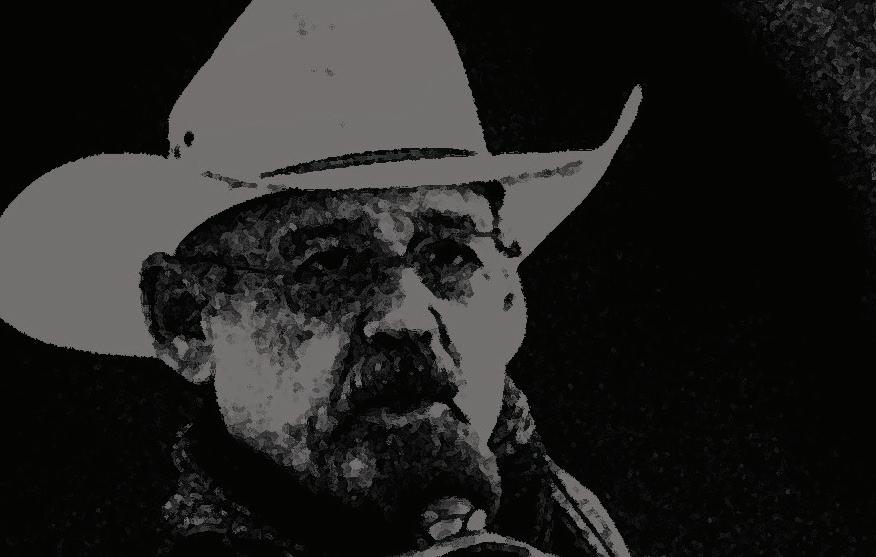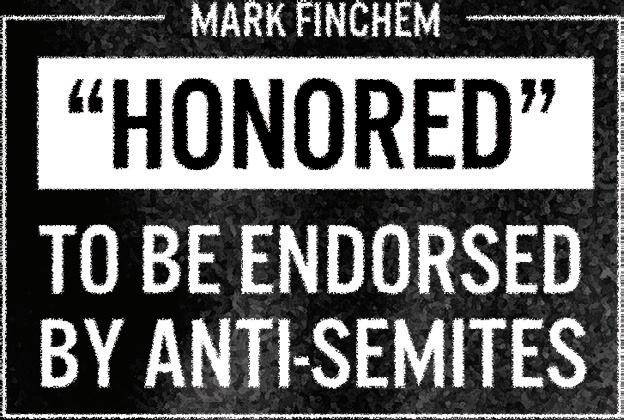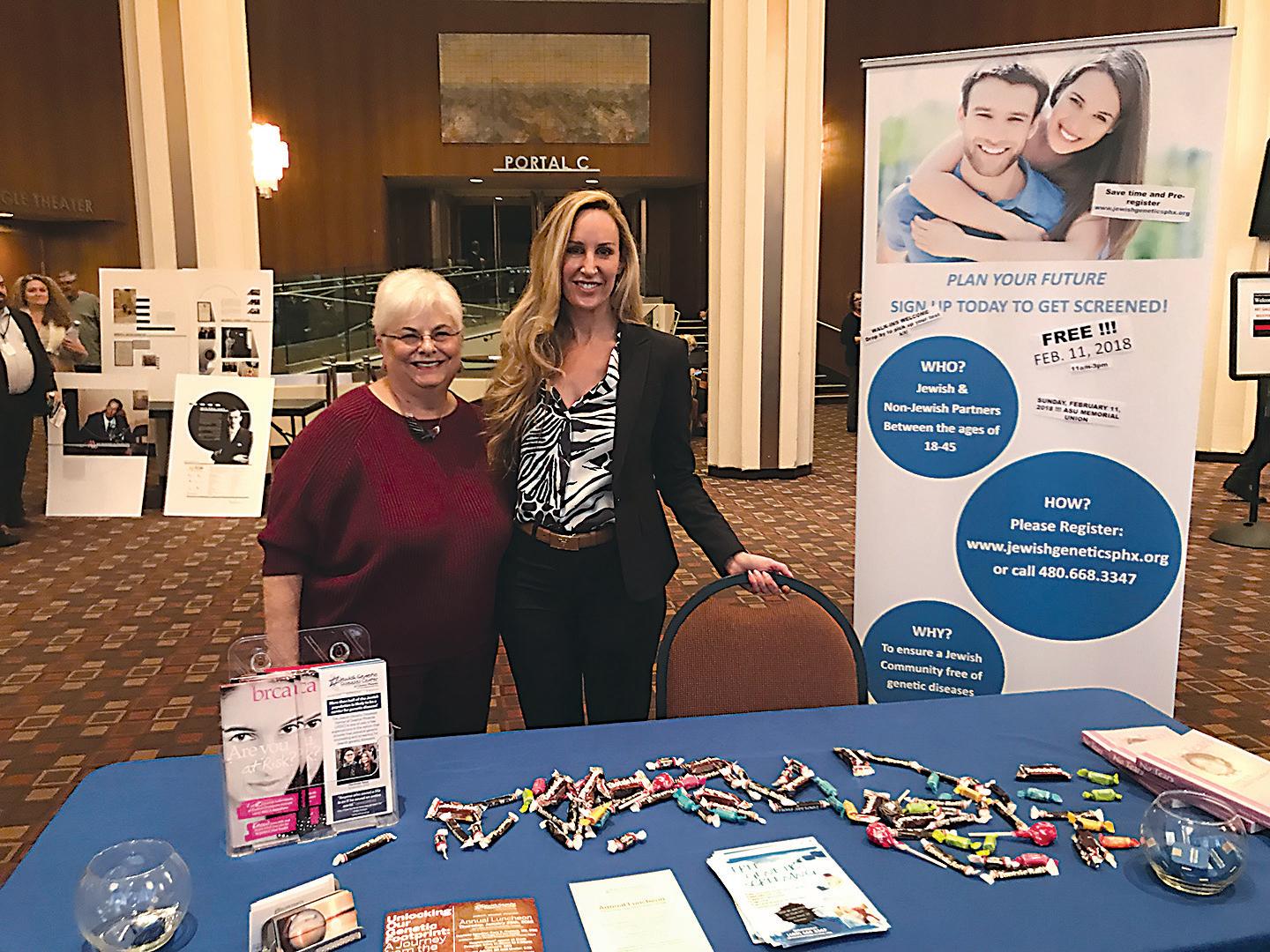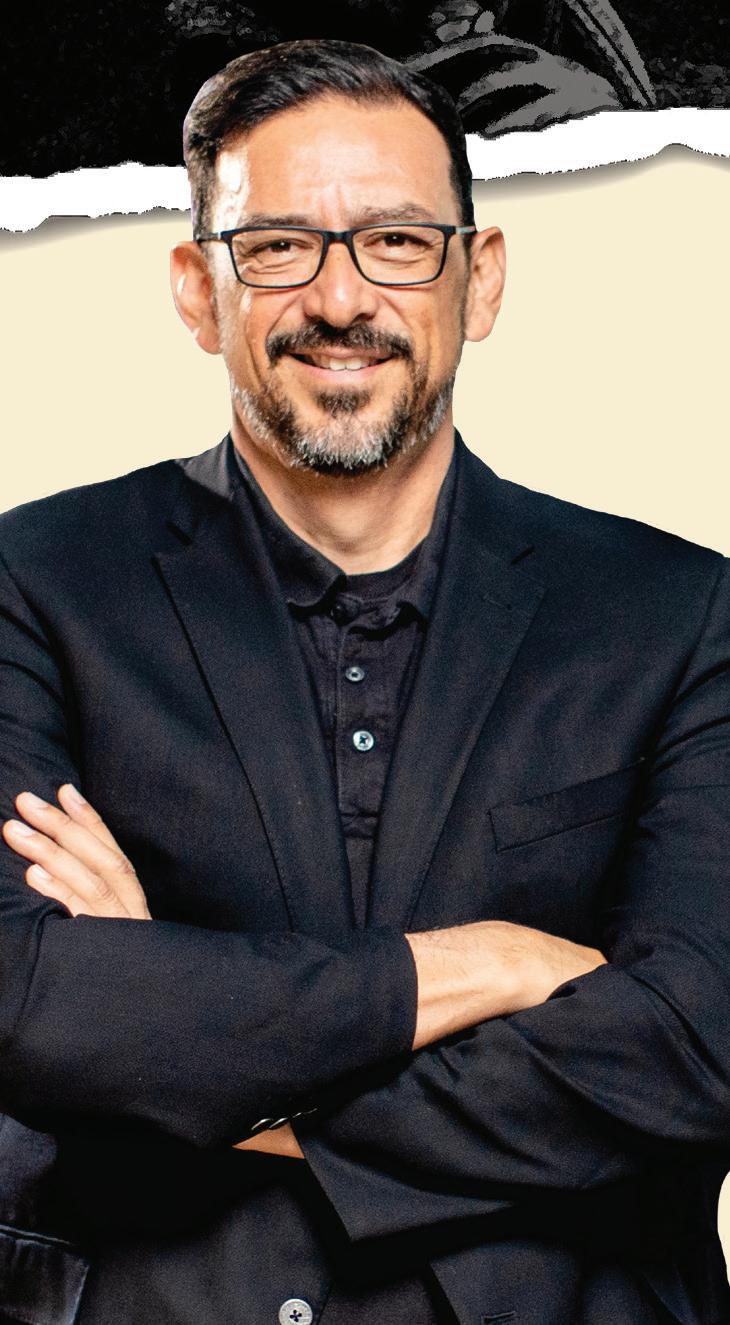
6 minute read
Minkoff Center and Beth El host genetic screening event open to the whole community
MALA BLOMQUIST | MANAGING EDITOR
Everyone has BRCA1 and BRCA2 genes, but only some have mutations in those genes. According to the Centers for Disease Control and Prevention, about 1 in every 500 women in the United States has a mutation in either her BRCA1 or BRCA2 gene. About 50 out of 100 women with a BRCA gene mutation will get breast cancer by the time they turn 70, compared to only 7 out of 100 women in the general United States’ population.
Advertisement
Since 2004, the nonprofit Minkoff Center for Jewish Genetics has been serving both Jews and non-Jews in Greater Phoenix through education, genetic screening and referral services for BRCA and other hereditary cancers.


On Sunday, Oct. 23, at 1 p.m., the Minkoff Center will be holding a genetic education and counseling event in conjunction with Congregation Beth El Phoenix’s Social Action Committee and Women’s League. The event will begin with a reception followed by a brief educational program starting at 2 p.m. Following the group program, personalized prenatal and hereditary counseling sessions will be conducted to give participants individual advice and care.
“This is the first event that we’ve ever done that has had both the BRCA and prenatal counseling, education and screening all under the same roof — and it’s in person,” said Wendy Carriere, the Minkoff Center’s executive director. “The founder, Sherman Minkoff, who passed away in 2018, was a huge proponent of in-person [events].”
Dr. Katherine Hunt Brendish is a director and clinical professor in the College of Health Solutions at Arizona State University. She joined ASU in 2019, coming from the Mayo Clinic School of Medicine, where she was an assistant professor in the Department of Clinical Genomics. A certified genetic counselor, Hunt Brendish, who is also Jewish, has been the director of the BRCA program at the Minkoff Center since it started the program in 2018.
“The event provides couples/individuals access to genetic counseling and genetic testing for conditions that could affect their offspring. The genetic counselors affiliated with the center will follow up with participants once their results are available and provide additional counseling and information, if necessary,” said Hunt Brendish.
“In addition, we will provide a brief overview of risk factors for hereditary forms of cancer in the Ashkenazi Jewish population, followed by personalized genetic counseling with a certified genetic counselor. The one-on-one genetic counseling will involve a discussion about possible risks for carrying a hereditary cancer gene as well as information about where to get genetic testing in the community.”

Carriere expressed appreciation to Sara Ziskin at Beth El for reaching out to her and offering to host the event. Ziskin is a member of the Beth El Social Action Committee along with Barbara Lewkowitz (chair), Debbie Gordon, Leisah Woldoff and Sara Zilversmit.
“We have events each month to support various projects in the broader community,” said Ziskin. “For October, we decided that we wanted to recognize breast cancer awareness month and to provide information and screening to Beth El members and to the broader community. We contacted the Minkoff Center to work on the event with us and provide their expertise. As we planned the event, we broadened it to also provide prenatal information and screening.”
This is the first in-person event the Minkoff Center held since the pandemic, when they provided their services virtually.
“The pandemic allowed us to shift our programming as we provided two virtual programs,” said Hunt Brendish. “The first program focused on information and patient experiences with hereditary breast and ovarian cancer and the second program focused on a couples’ experience with prenatal carrier screening.”

Carriere explained the center has also changed its mission statement to include the word “support” to be more sensitive to the landscape after the pandemic.
“Everybody neglected some portion of health care when it was closed down,” said Carriere. “Our organization is trying to be more agile than we were before. We’re listening to what the community wants.”
Hunt Brendish encourages anyone interested in either prenatal screening or education about hereditary cancer syndromes to attend the event. “There is no obligation to undergo prenatal genetic screening if you are not interested. In addition, if someone has questions about their family history of cancer and are not sure whether they should undergo genetic testing, the event will provide individuals an opportunity to get all their questions answered.”
“Everybody knows somebody who has had cancer and if it’s hereditary you have to know,” said Carriere. “We have this concept of ‘previvor’ where you haven’t gone through it yet. Obviously, there’s the cancer survivor but you want to be in that place where you’re just being monitored all the time, so you never have to deal with it.” JN
For more information or to register, visit jewishgeneticsaz.org.
ELECTION 2022 / HEADLINES
CONTINUED FROM PAGE 6 critics, including from within Arizona’s Jewish community.
“The overlap between conspiracy theorists and antisemites is quite strong,” Tim Eckstein, JCRC’s chair, told Jewish Insider in June. “Masters is no exception. The Goering quote is, in and of itself, not antisemitic. It is that Masters cannot appreciate that other non-Nazis have said similar things, and there is something pernicious in quoting Goering, or any other prominent member of that murderous regime. For him, it is all one big game.”
CONTINUED FROM PAGE 7 than myself when I advocate for women every day,” she said.
She was accompanied by Jennifer Kirshner, another CBI congregant, who came because “more voices are necessary in this battle,” she said.
“The religious right has kidnapped this pro-life movement and I’m thrilled to see the faith community come together — it’s really beautiful.”
After the event, Stein Kokin told Jewish News that she hoped to see balanced
Masters also received Torba’s endorsement but did not promote it.
Finchem was the only Republican candidate to respond to Jewish News’ requests for comment.
HOW SHOULD JEWS RESPOND?
Zinman is frustrated with the Jewish leadership in Arizona, who he said is not speaking up enough about Republican antisemitism.
“It’s me and the Phoenix JCRC and nobody else in leadership is speaking up,” he said. “In the Jewish community, we don’t want to offend people so we don’t speak out.”
Adam Metzendorf, who lost his legislation and pointed out that Jewish law is nuanced on the question of abortion.
“It’s a case-to-case thing,” she said. “It’s important that we don’t just have ancient laws — we’re in the 21st century and the legislature needs to speak to our reality.”
She decided to speak about young people because, as a mother of two young girls, “young people are particularly on my mind.”

The rabbi said she has witnessed the “tremendous fear” of teenagers who don’t know what the future holds — something “we took for granted.”
Sharfman called Arizona’s bans “an candidacy in the Democratic primary for Arizona’s 1st Congressional District in the U.S. House wrote about the issue of antisemitism in the Republican party for Arizona Mirror.

“I see people repeating antisemitic tropes and inciting crowds. These crowds don’t explicitly say the word Jew — instead they say “Soros”, “Bloomberg”, or “Globalist Agenda,” as if these words aren’t equally documented as being guises for antisemitism,” he wrote.
He called out Rachel Mitchell, Republican candidate for Maricopa County Attorney, for fear mongering about the “Soros machine,” Lake’s diatribes against “the globalist agenda” infringement on our religious rights” that interferes with “religious liberty, something we cannot tolerate.”
According to polling, American Jews support abortion rights more than any other religious group. Non-Orthodox Jews have been at the fore of advocacy against the current sweep of abortion legislation. Some Orthodox groups have said they applaud the Dobbs v. Jackson decision while still believing that abortion should be permitted in some cases. Scholars of Jewish law largely agree that it requires abortion when the pregnant person’s health is at risk, though there is disagreement about what and Finchem’s tweets about “loyalty.. to George Soros and Mike Bloomberg.”
JCRC called out many Republicans for antisemitic statements, but said that “the Arizona GOP has many leaders of character. The Jewish community appreciates those who have spoken out against their colleagues who, regrettably, continue to associate with antisemites and white supremacists, and who pander to those with antisemitic beliefs.”
Still, Zinman said, it’s not enough.
“We’re not a big enough tent to have fascists and antisemites in our tent. The rabbis need to speak out and the community leaders need to speak out. I get a lot of ‘I’m with you but I can’t go public.’” JN constitutes such a risk.
Imam Omar Tawil, associate imam and chaplain of the Islamic Community Center of Tempe and Arizona State University, was planning to attend but was called away for a death in his community.
Paul Rockower, executive director of Jewish Community Relations Council of Greater Phoenix and Eddie Chavez Calderon, Arizona Jews for Justice’s campaign director, were also in attendance. JN
This article incorporated material from Jewish Telegraphic Agency.








